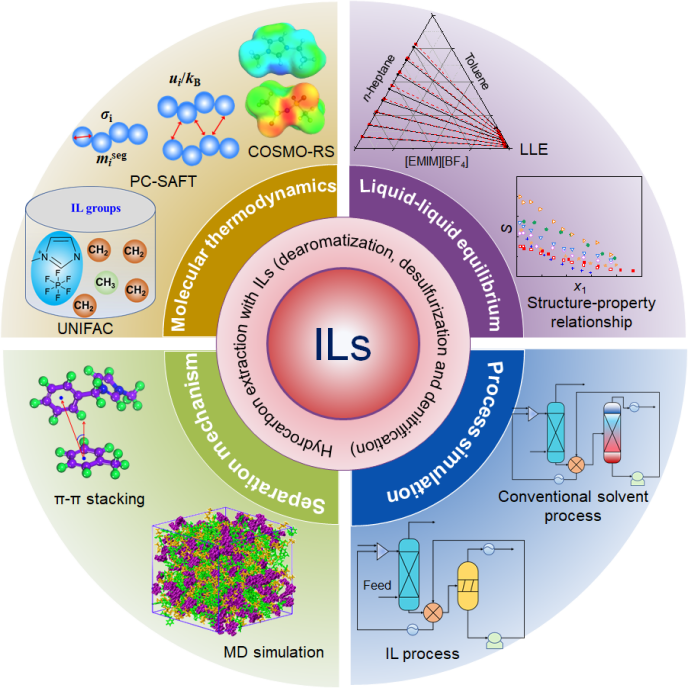Professor Chen Biaohua's group from BJUT's College of Environmental Science and Engineering has recently published a paper, entitled by "Hydrocarbon Extraction with Ionic Liquids", in the prestigious international journal Chemical Reviews. BJUT was the only contributing institution, with Associate Professor Yu Gangqiang from the College of Environmental Science and Engineering as the only first author and Associate Professor Dai Chengna as the only corresponding author.

In recent years, ionic liquids have become a popular choice as environmentally friendly solvents, sparking widespread interest in disciplines such as chemical engineering, energy, and materials science. The research group's findings offer a detailed and systematic review of the latest techniques involved in ionic liquids used to separate and purify hydrocarbons (e.g., aromatics extraction, desulfurization and denitrification). Based on a detailed analysis of the challenges of ionic liquid-related separation technologies, the research has initiated a discussion about the potential future opportunities in these separation fields of using ionic liquids, giving valuable insights to steer future research and possible industrial applications.

For some time, Professor Chen Biaohua's group has been expanding the variety of possible applications for ionic liquids and ionic liquid analogs in separation techniques. In response to the major need to recycle spent lithium-ion batteries (LIBs) in China's new energy vehicle industry, the research group has proposed a new technique, using ionic liquids and deep eutectic solvents, to extract valuable metals from these spent LIBs, achieving an impressive recovery ratio of 98%. This groundbreaking research has been published in AIChE Journal, a prestigious international journal in the chemical engineering field, and has also resulted in the submission of seven patent applications. This technology is currently in a critical stage of ongoing research and optimization. It will support the efficient use of spent LIBs and apply the results to the "hundred billion-level" recycling market for these LIBs, strengthening the sustainable development of China's new energy industry.




